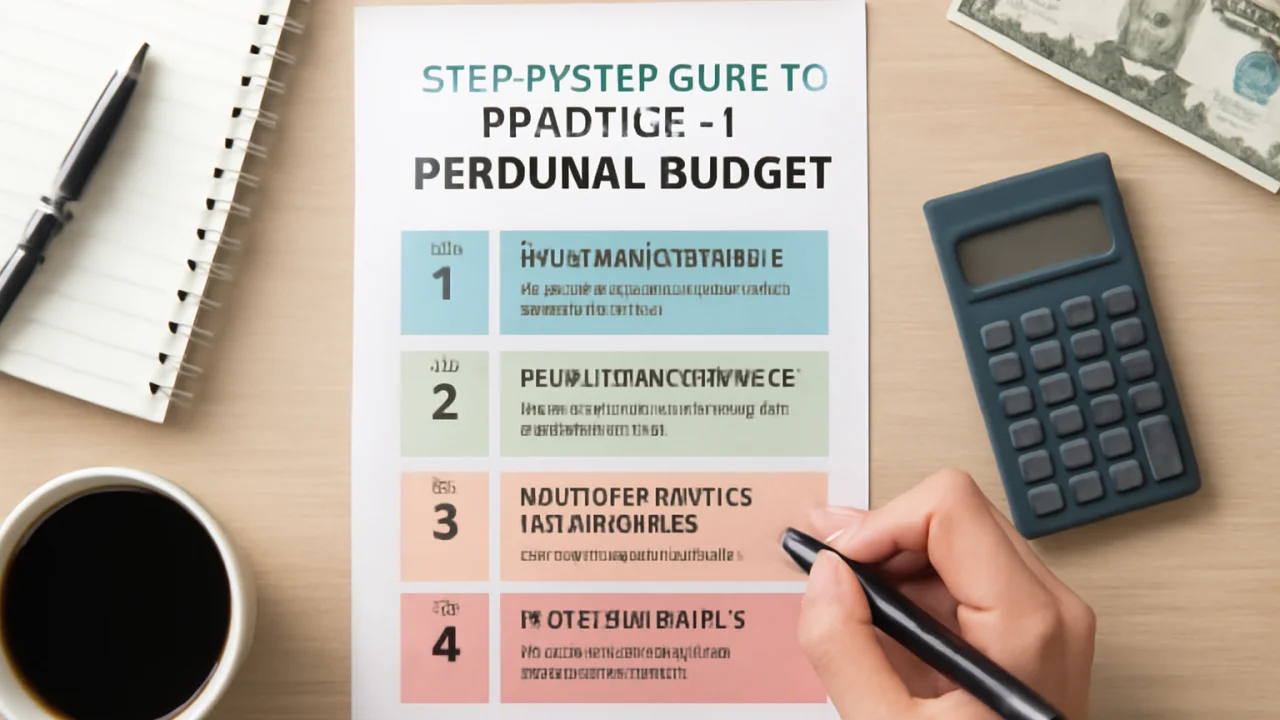
The Ultimate Guide to Personal Budgeting: Strategies for Financial Success in 2024
📑 Contents
The Ultimate Guide to Personal Budgeting: Strategies for Financial Success in 2024
Managing your finances effectively is more important than ever in today’s rapidly changing economy. Personal budgeting is a fundamental skill that can help you control your spending, save for the future, and achieve your financial goals. In this comprehensive guide, we’ll explore proven budgeting strategies, the latest tools, and expert tips to help you create a sustainable financial plan in 2024.
Why Budgeting Matters in Today’s Economy

With inflation, rising living costs, and economic uncertainty, budgeting is essential for maintaining financial stability. A well-crafted budget allows you to:
- Track and control your spending habits
- Build an emergency fund
- Reduce debt and increase savings
- Set and achieve short-term and long-term financial goals
- Prepare for unexpected expenses
Understanding your income and expenses is the first step towards taking control of your finances and reducing financial stress.
Step-by-Step Guide to Creating a Personal Budget

Building a personal budget doesn’t have to be complicated. Follow these steps to establish a practical and effective budget:
1. Calculate Your Net Income
Your net income is the amount you take home after taxes and deductions. Include all sources of income, such as salary, freelance work, rental income, and investments. Knowing your true income sets the foundation for your budget.
2. List All Expenses
Track every expense, from rent and utilities to groceries and entertainment. Break your expenses into fixed (rent, loan payments) and variable (dining out, shopping) categories. Reviewing bank statements or using budgeting apps can help capture all your spending.
3. Set Realistic Financial Goals
Define your financial objectives—whether it’s paying off debt, saving for a vacation, or building a retirement fund. Setting clear, achievable goals will keep you motivated and focused.
4. Choose a Budgeting Method
There are several popular budgeting methods. Select one that fits your lifestyle and financial situation. Here’s a comparison of the most common approaches:
| Budgeting Method | Description | Best For |
|---|---|---|
| 50/30/20 Rule | Allocate 50% of income to needs, 30% to wants, and 20% to savings/debt. | Beginners, simple structure |
| Zero-Based Budget | Assign every dollar a purpose; income minus expenses equals zero. | Detail-oriented, maximizing savings |
| Envelope System | Use cash envelopes for different spending categories. | People who overspend easily |
| Pay Yourself First | Prioritize savings by setting aside a fixed amount before spending. | Building savings discipline |
5. Monitor and Adjust Regularly
Review your budget monthly. Track your progress toward goals, adjust for unexpected expenses, and revise categories as needed. Flexibility is key to long-term success.
Top Budgeting Tools & Apps for 2024

Technology makes budgeting easier and more efficient. Here are some of the top budgeting tools and apps for 2024:
- Mint: Free app that tracks spending, creates budgets, and provides bill reminders.
- YNAB (You Need A Budget): Focuses on zero-based budgeting and offers educational resources.
- EveryDollar: Simple, user-friendly budgeting based on the zero-based method.
- Personal Capital: Combines budgeting with investment tracking and retirement planning.
- Spreadsheets (Google Sheets, Excel): Customizable and flexible for those who prefer manual tracking.
Choose a tool that aligns with your personal preferences and comfort with technology.
Common Budgeting Mistakes and How to Avoid Them
Even the best plans can go off track. Here are some common budgeting mistakes and tips for avoiding them:
- Underestimating Expenses: Always round up and include irregular costs like car repairs or annual subscriptions.
- Not Accounting for Small Purchases: Coffee runs and snacks add up. Track every expense, no matter how minor.
- Ignoring Emergency Savings: Prioritize building an emergency fund to cover at least 3–6 months of living expenses.
- Being Too Rigid: Allow flexibility for changes in income or expenses to avoid frustration and burnout.
- Failing to Review Regularly: Make it a habit to review and adjust your budget every month.
Advanced Strategies: Saving, Investing, and Debt Reduction
Once your basic budget is in place, focus on maximizing your financial growth and security:
Building an Emergency Fund
Set aside a small amount each month until you have 3–6 months of living expenses saved. This fund provides peace of mind and helps you avoid debt during emergencies.
Smart Saving and Investing
Automate savings to ensure consistency. If possible, invest in low-cost index funds or retirement accounts to grow your wealth over time. Take advantage of employer-sponsored retirement plans and consider consulting a financial advisor for personalized guidance.
Debt Reduction Techniques
- Debt Snowball: Pay off smallest debts first for quick wins, then move to larger balances.
- Debt Avalanche: Focus on paying off debts with the highest interest rates to save money over time.
- Consolidation: Consider consolidating high-interest debts for lower monthly payments.
Tips for Sticking to Your Budget
Maintaining a budget requires discipline and motivation. Here are some practical tips to help you stay on track:
- Set reminders to review your budget regularly
- Celebrate milestones, such as paying off a credit card or reaching a savings goal
- Find a budgeting buddy for accountability
- Use cash for discretionary spending to avoid overspending
- Continuously educate yourself about personal finance
FAQs About Personal Budgeting
1. How often should I update my budget?
It’s best to review and update your budget monthly, especially if your income or expenses fluctuate. Regular updates help you stay on top of your finances and make timely adjustments.
2. What percentage of my income should go to savings?
A common recommendation is to save at least 20% of your net income. However, the right percentage depends on your financial goals and obligations. Start with what you can and increase over time.
3. Can budgeting help with debt repayment?
Absolutely. A structured budget allocates funds for debt repayment, helps prioritize high-interest debts, and prevents new debt from accumulating.
4. Is it better to use a budgeting app or a spreadsheet?
Both options work well. Apps automate tracking and offer real-time insights, while spreadsheets offer flexibility and customization. Choose the tool that fits your style and comfort level.
5. What should I do if I overspend in a category?
If you overspend, adjust your budget by reducing spending in another category or increasing your income. The key is to stay flexible and avoid giving up altogether.
Summary: Take Control of Your Financial Future
Personal budgeting is a powerful tool for achieving financial security and peace of mind. By understanding your income and expenses, setting clear goals, and using the right tools and methods, you can take control of your finances in 2024 and beyond. Remember, consistency and flexibility are crucial. Start small, stay committed, and watch your financial confidence grow.











